Health
All pigs must receive immediate veterinary attention when they are sick or injured. In most cases, unnecessary pain, injury and disease can be prevented through good husbandry, regular visits to a veterinarian and addressing any issues the veterinarian raises.
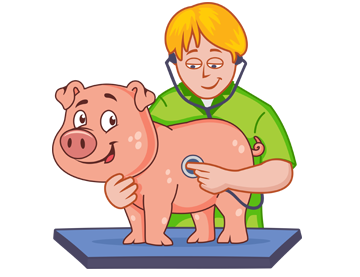
Did you know that there is a special law protecting animals?
This law is called the Animal Welfare Act. The Animal Welfare Act outlines how people must take care of and act towards animals in New Zealand. The Ministry for Primary Industries (MPI), the Police and SPCA work together to make sure people in New Zealand follow these laws.
Under the Animal Welfare Act, all animal guardians (owners) are responsible for making sure the welfare needs of animals in their care are met. Learning about the Five Domains helps us to understand these welfare needs and how we can make sure we provide these. One of the Five Domains is Health. In this section you will learn about this domain and how you can make sure your pigs have the right veterinary care to be healthy.

















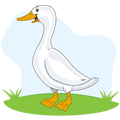
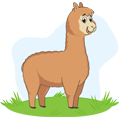
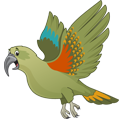

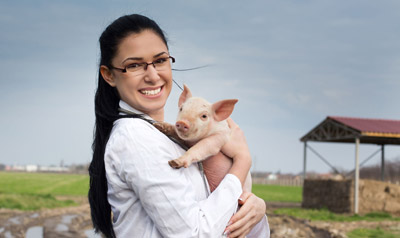 Just like you have a family doctor that you see when you are unwell, your pig needs their own doctor too - a veterinarian. It’s a good idea for your family to find out which veterinarian they plan on using before you get your pig.
Just like you have a family doctor that you see when you are unwell, your pig needs their own doctor too - a veterinarian. It’s a good idea for your family to find out which veterinarian they plan on using before you get your pig. Pigs are prone to sunburn and do not do well in very warm or hot weather. To prevent sunburn, just like you or I, you should provide areas of shade for your pig to avoid the sun and keep in the shade. Another option is to provide an area of water or mud for your pig to cool down in – a wallow – as mud can act as a natural sun screen for pigs.
Pigs are prone to sunburn and do not do well in very warm or hot weather. To prevent sunburn, just like you or I, you should provide areas of shade for your pig to avoid the sun and keep in the shade. Another option is to provide an area of water or mud for your pig to cool down in – a wallow – as mud can act as a natural sun screen for pigs.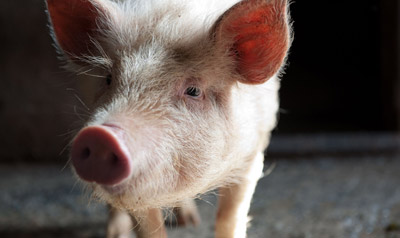 Pigs generally do not have very good eye sight and certain breeds of pigs are prone to eye problems. For example, pot-bellied pigs can develop folds of skin which can end up covering parts of your pigs’ eyes as they age, typically as they become bigger and sometimes too fat.
Pigs generally do not have very good eye sight and certain breeds of pigs are prone to eye problems. For example, pot-bellied pigs can develop folds of skin which can end up covering parts of your pigs’ eyes as they age, typically as they become bigger and sometimes too fat.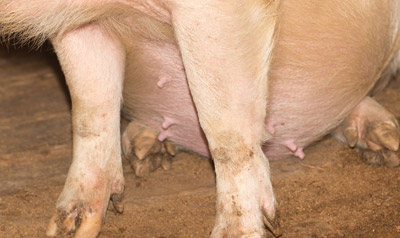 Pigs have four toes which are covered in hard hooves. The two front hooves are large and flat and carry most of your pig’s body weight. Since hooves do such an important job, looking after them and keeping them well maintained is very important. Your pig’s hooves also need to be inspected often to make sure they are healthy and in good shape. You need to check that your pig is not limping, and that their hooves are not cracked or swollen. You should also check that they do not have any stones or other items stuck in between their hooves.
Pigs have four toes which are covered in hard hooves. The two front hooves are large and flat and carry most of your pig’s body weight. Since hooves do such an important job, looking after them and keeping them well maintained is very important. Your pig’s hooves also need to be inspected often to make sure they are healthy and in good shape. You need to check that your pig is not limping, and that their hooves are not cracked or swollen. You should also check that they do not have any stones or other items stuck in between their hooves.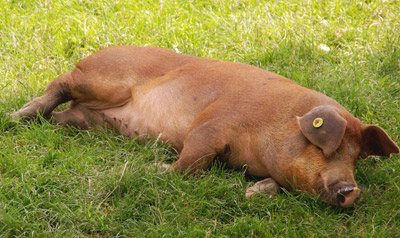 Pigs love to eat, so if your pig seems like it has lost its appetite and does not want to eat, this is a sign that your pig may be ill.
Pigs love to eat, so if your pig seems like it has lost its appetite and does not want to eat, this is a sign that your pig may be ill.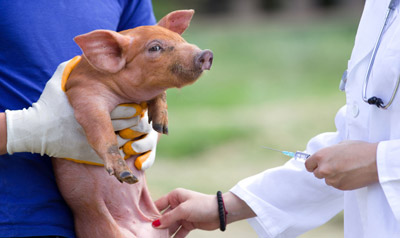 Your pig will need some preventative treatments to make sure they do not become sick, ill or diseased. This is the easiest way to make sure your pig stays healthy.
Your pig will need some preventative treatments to make sure they do not become sick, ill or diseased. This is the easiest way to make sure your pig stays healthy.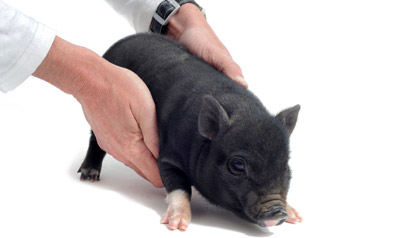 If your pigs show any signs of vomiting, diarrhoea, discoloured skin or urine, panting, shivering, quick weight loss, lots of dribbling, limping – or any other strange, non-normal behaviours, you should call your veterinarian to come and check on your pig.
If your pigs show any signs of vomiting, diarrhoea, discoloured skin or urine, panting, shivering, quick weight loss, lots of dribbling, limping – or any other strange, non-normal behaviours, you should call your veterinarian to come and check on your pig.








